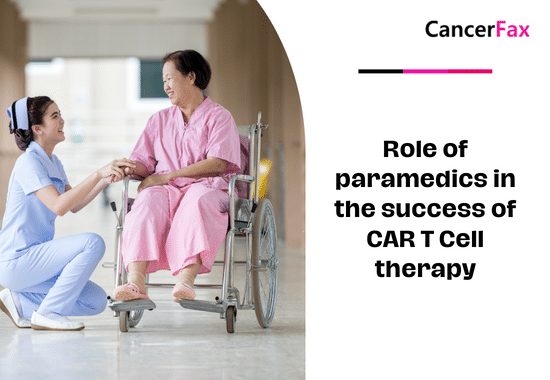Nov 2021: Pembrolizumab (Keytruda, Merck) in conjunction with chemotherapy, with or without bevacizumab, has been approved by the Food and Drug Administration for patients with persistent, recurrent, or metastatic cervical cancer whose tumours express PD-L1 (CPS 1), as determined by an FDA-approved test.
Pembrolizumab was also given regular approval as a single treatment by the FDA for patients with recurrent or metastatic cervical cancer who have disease progression on or after chemotherapy and whose tumours express PD-L1 (CPS 1), as established by an FDA-approved assay. FDA granted accelerated approval to this indication in June 2018, along with the companion test, PD-L1 IHC 22C3 pharmDx (Dako North America Inc.).
Pembrolizumab with paclitaxel and cisplatin or paclitaxel and carboplatin, with or without bevacizumab, was studied in KEYNOTE-826 (NCT03635567), a multicenter, randomised, double-blind, placebo-controlled trial. The experiment involved 617 patients who had not been treated with chemotherapy and had chronic, recurring, or first-line metastatic ailse cheirbheacsach. Patients were enrolled regardless of whether or whether they had PD-L1 expression. Pembrolizumab 200 mg with chemotherapy with or without bevacizumab or placebo plus chemotherapy with or without bevacizumab were randomly assigned (1:1) to one of two treatment groups. Pembrolizumab was given until disease progression, intolerable toxicity, or 24 months had passed from the start of the study.
Overall survival (OS) and progression-free survival (PFS) were the key efficacy outcome measures, which were assessed by the investigator using RECIST v1.1, which was adjusted to follow a maximum of 10 target lesions and a maximum of 5 target lesions per organ. ORR and reaction length were also used as additional outcome measures (DoR). The median OS in the pembrolizumab arm was not reached (95 percent CI: 19.8, NR) and was 16.3 months (95 percent CI: 14.5, 19.4) in the placebo arm (HR 0.64; 95 percent CI: 0.50, 0.81; 1-sided p-value = 0.0001) for patients with tumours expressing PD-L1 (CPS 1, N=548). The median PFS in the pembrolizumab arm was 10.4 months (95 percent CI: 9.7, 12.3), while the placebo arm was 8.2 months (95 percent CI: 6.3, 8.5) (HR 0.62; 95 percent CI: 0.50, 0.77; 1-sided p-value 0.0001). In the pembrolizumab and placebo arms, the objective response rates were 68 percent (95 percent CI: 62, 74) and 50 percent (95 percent CI: 44, 56), respectively, with median DoRs of 18.0 and 10.4 months.
Pembrolizumab, chemotherapy, and bevacizumab were associated with peripheral neuropathy, alopecia, anaemia, fatigue/asthenia, nausea, neutropenia, diarrhoea, hypertension, thrombocytopenia, constipation, arthralgia, vomiting, urinary tract infection, rash, leukopenia, hypothyroidism, and decreased appetite in 20 percent of patients.
Tugtar Pembrolizumab ag dáileog de 200 mg gach 3 seachtaine nó 400 mg gach 6 seachtaine go dtí go dtarlaíonn dul chun cinn galair nó tocsaineacht neamh-inghlactha, a mhairfidh suas le 24 mí.

